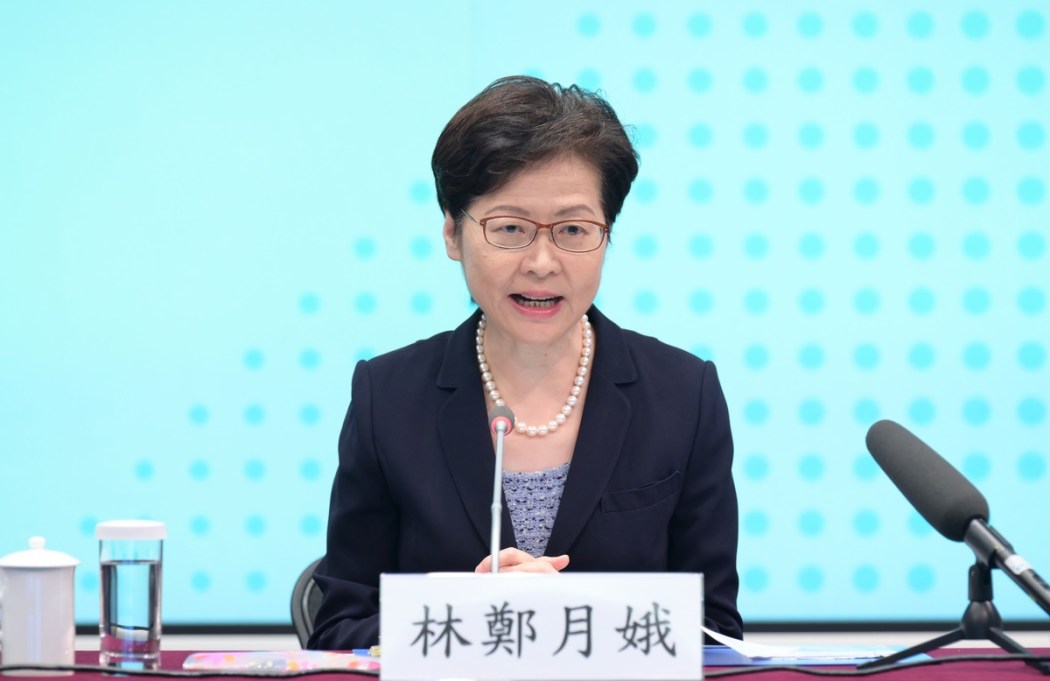It has been interesting to watch the early coverage of the “Chief Executive race” to succeed Carrie Lam, whose term expires in July next year.
If the election was really an election, this would involved considering the appeal of the various possible candidates, who of course may include Ms Lam herself, to the various sectors of the Election Committee. The rest of us, of course, have no say in the matter.

But this is not the way the matter is put, even in the most obsequious pro-government media. It is accepted that the choice will be made in some mysterious and majestic way by the Liaison Office, the Hong Kong and Macau Affairs Office in Beijing or both, possibly with input, if he is interested, from President Xi.
This presents us with a problem which will be familiar to regular players of the horses. The form is no help at all. We need to know who is trying to win, who is not trying to win, and who is trying not to win. Stock pickers in Hong Kong face a similar problem. What matters is not the value of a stock but the things other people are trying to do to the price. In short, the election is totally unpredictable.
This may explain why the suggestions made publicly so far have been extremely unenterprising. It has been suggested that Ms Lam might go for another term. It has also been suggested that her rival for the vacancy might be Mr Leung Chun Ying, her predecessor as Chief Executive.
This is a very depressing prospect. I realise that the whole enterprise is quite uninfluenced by the desire to please the people, but there is no need to slap them in the collective face.

Ms Lam has been the most unpopular Chief Executive since records began. The previous holder of this title was Mr Leung. There is little difference between them.
Ms Lam, to be fair, has been sensibly quiet about the question. She knows how the game is played. She will be told whether she is running when the time is ripe.
Mr Leung, on the other hand, has been noisy enough to suggest a burning ambition. His enthusiasm for public housing knows no bounds. It certainly does not stop at the edges of country parks. I have always thought he had a bit of a nerve pushing this line. The public housing programme was gutted during the administration of Mr Donald Tsang. Mr Leung was not a passive spectator of this process: he was then the convenor of the Executive Council.
The other week Mr Leung appeared in a new guise, expressing anxiety about the prospects of minority shareholders in Next Digital when so many of the shares – those owned by Jimmy Lai – had been frozen. Well we can all sympathise with the minority shareholders, although anyone who didn’t notice that this particular company faced a high level of political risk should not have been allowed near the stock market.
But Mr Leung has not been a David Webb-like watchdog of market shenanigans in the past. Why the sudden interest? I look forward to further commentaries on the vagaries of Hong Kong’s listed companies from Mr Leung. If they are not forthcoming we might suspect that his interest in Next Digital had less to do with sympathy and more to do with a chance to gloat over the downfall of a critic.

Well there we are. Let us hope this is not going to be a two-horse race, and that if it is a two-horse race some new horses can be found.
Looking at the patriotic camp it is difficult to see where they are going to come from. Some plausible candidates have already ruled themselves out with sufficient vigour to suggest that they are not just being modest. They really don’t want the job.
Indeed it is not clear why anyone would want it, under present circumstances. The area in which the Hong Kong government is allowed to make its own decisions seems to have shrunk to roughly the dimensions of the powers of the old Urban Council. It can redesign litter bins, build toilets and footbridges, license bars and provide entertainment — or if you prefer culture. Everything else will be decided by mainland officials.
Once we have eliminated the unpatriotic, the unqualified and the unwilling it is difficult to see any plausible prospects, and one has to suspect that the desire to hold a position with such an imbalance between prestige and power suggests either an excess of ambition or an excess of greed. Whatever you think of the job, it pays well.
This suggests that the selectors, who are all mainland officials, might do well to consider one of themselves. Of course this is not the way “one country two systems” was supposed to work, but it is the way it works now. Let us see the organ grinder, not the monkey.
Support HKFP | Policies & Ethics | Error/typo? | Contact Us | Newsletter | Transparency & Annual Report | Apps
Help safeguard press freedom & keep HKFP free for all readers by supporting our team
| HKFP is an impartial platform & does not necessarily share the views of opinion writers or advertisers. HKFP presents a diversity of views & regularly invites figures across the political spectrum to write for us. Press freedom is guaranteed under the Basic Law, security law, Bill of Rights and Chinese constitution. Opinion pieces aim to point out errors or defects in the government, law or policies, or aim to suggest ideas or alterations via legal means without an intention of hatred, discontent or hostility against the authorities or other communities. |

More HKFP OPINION:
HKFP has an impartial stance, transparent funding, and balanced coverage guided by an Ethics Code and Corrections Policy.
Support press freedom & help us surpass 1,000 monthly Patrons: 100% independent, governed by an ethics code & not-for-profit.










